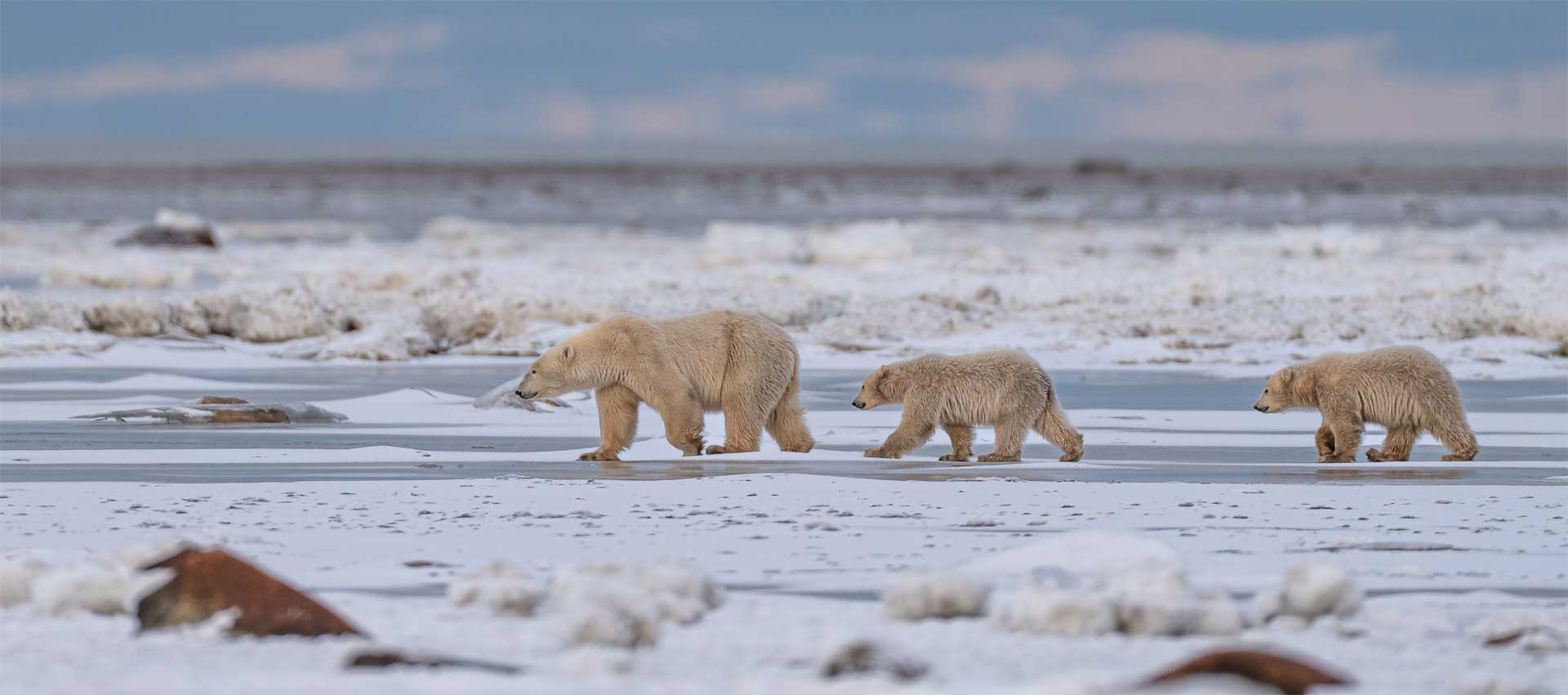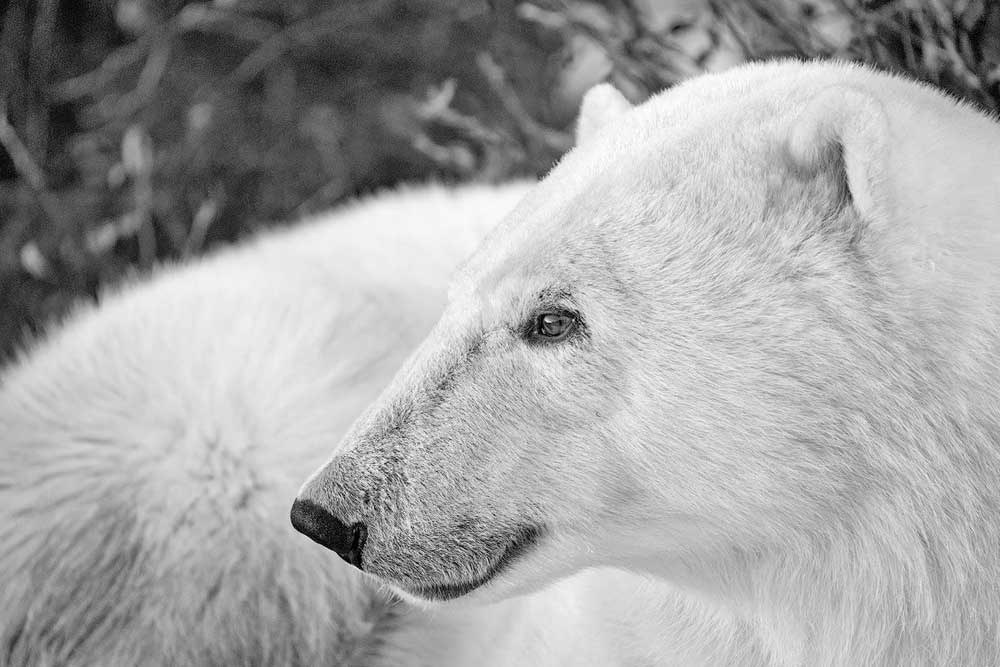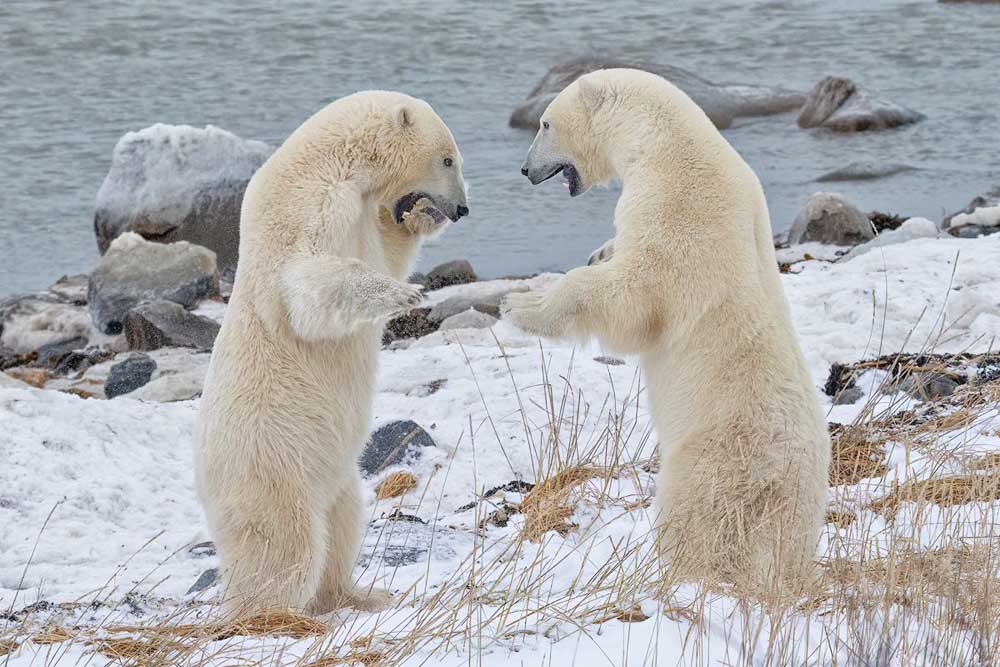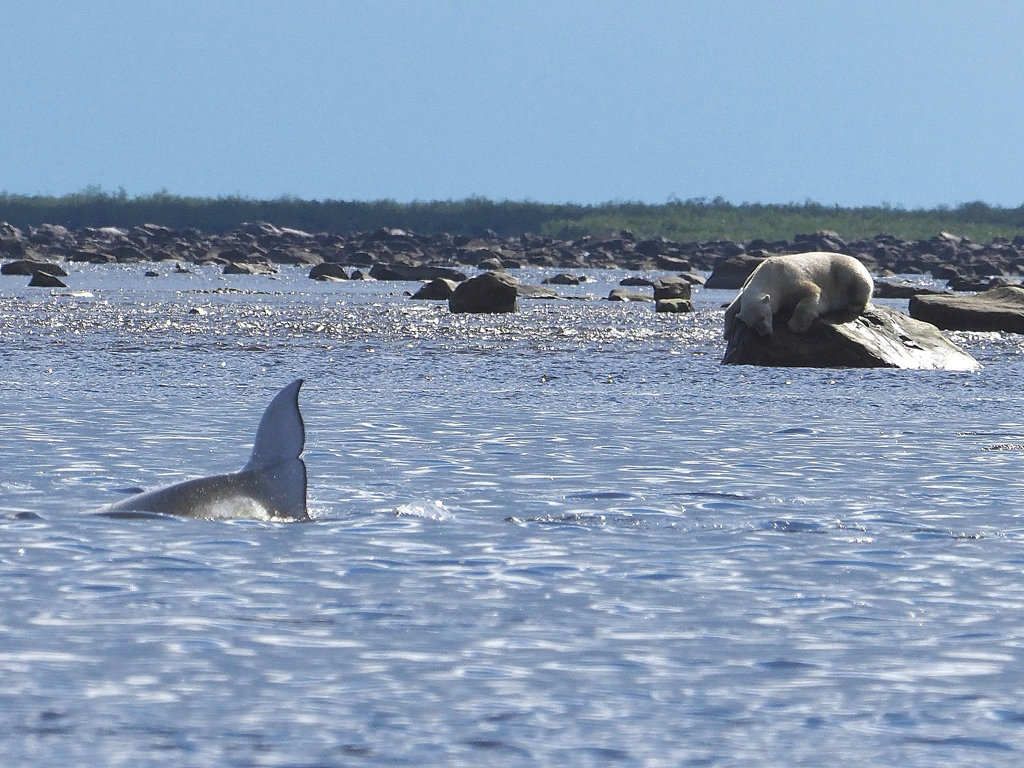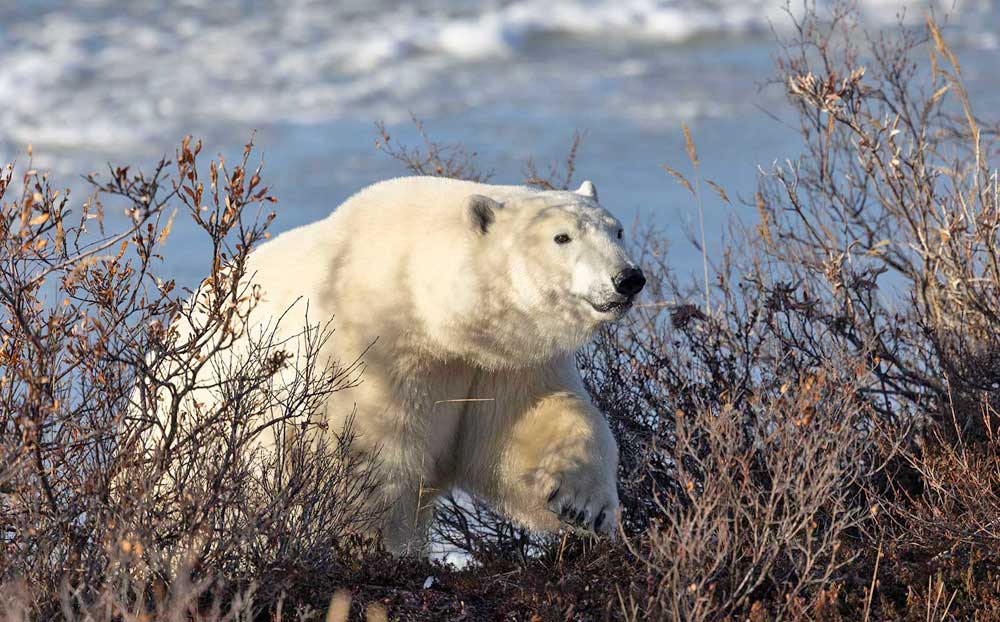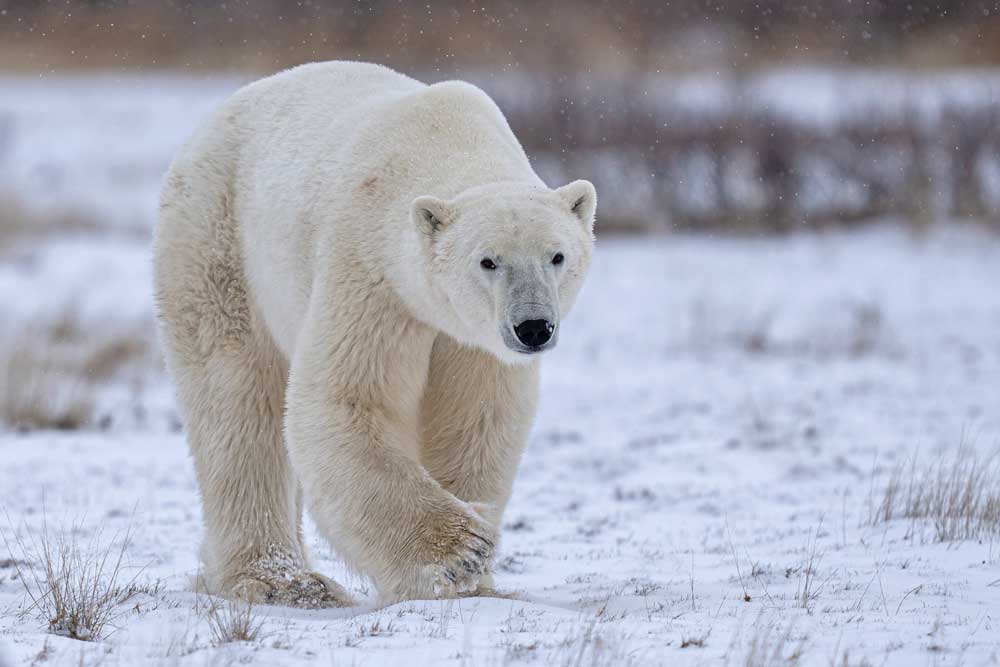International Polar Bear Week takes place from October 30 to November 5 this year, and the polar bears are already congregating on the shores of Hudson Bay anxiously waiting for the ice to form.
People from all over the world will make extra efforts to reduce their impact on the environment during this special week, while also creating awareness about climate change, especially with regards to polar bears. Climate change has become even more important in recent years from a political standpoint, and the polar bears can only stand to benefit from the steadily increasing awareness.
Many people are already reducing energy consumption in their homes, schools and workplaces, turning thermostats down, driving less, using more energy-efficient devices, and simply being kinder to the environment through reducing, reusing and recycling, which is something we’ve been practicing at our northern ecolodges for over 30 years.
The awareness created through Polar Bear Week attracts more supporters and creates new conservationists every year. According to scientists, climate change has had a dramatic influence on the reduction of the Arctic sea ice.
This means more open water for steadily longer periods and less time on the ice for the polar bears to hunt seals, the main component of their diet. Polar bears not only need the sea ice to maintain their high dietary requirements, they also use it for traveling, socializing and finding mates.
We’ve seen earlier-than-normal freeze-ups and later-than-normal freeze ups; we’ve seen the Qamanirjuaq caribou herd alter their migratory patterns and we’ve also started to see polar bears hunting beluga whales during the summer months. Our interpretation of all this is that the wildlife is reacting to the changes happening to their habitat and they are adapting as they always have.
The changing climate is a reality, but from our observations over the past 50 years, we haven’t identified a consistent decline in the health of the wildlife that call the Hudson Bay coastline home. We’re continuing to see lots of healthy bears, especially this year, including moms with cubs, and expect that future generations of our family will also have the opportunity to walk with and live among polar bears.
That being said, we also understand the reality of climate change and its potential effects both globally and on our local environment. We grew up and raised our family among the wildlife and wilderness of Manitoba’s Hudson Bay coast and feel a deep commitment to the preservation of this ecosystem.

Sustainable Tourism Award winner. Churchill Wild.
When we started Churchill Wild in 1993, we knew that sustainability had to play a major role in the development of our business and its operational framework and we’ve worked tirelessly to ensure we do everything we can to minimize our environmental impact including:
- efficient use of solar power at all of our lodges
- large picture windows to make use of natural light
- energy efficient appliances and lights
- minimum use of motorized vehicles (hence our walking with polar bears adventures!)
- strict recycling and composting policies
- biodegradable cleaning products and in-room toiletries
- locally foraged and harvested food whenever possible
- educating and informing guests about polar bears and their environment
We’ve always operated as sustainably as possible and will continue to make environmental health a priority. Each season brings new opportunities to improve the way we do business and we will continue to monitor the impact our operations have on the polar bears and other wildlife we live among, while always looking for new ways to be better stewards for our planet.
Will our efforts make a difference? We think they will, which is why we’ve been practicing the above ever since we began officially hosting guests at the Churchill Wild polar bear lodges 29 years ago. It’s part of our lifestyle and our guests also appreciate our efforts.
Polar bears have helped us throughout our working lives, in one of the most pristine environments on the planet. The very least we can do is be kind to the earth by minimizing our impact on the environment.
That’s not only good for the polar bears, it’s good for all of us.

